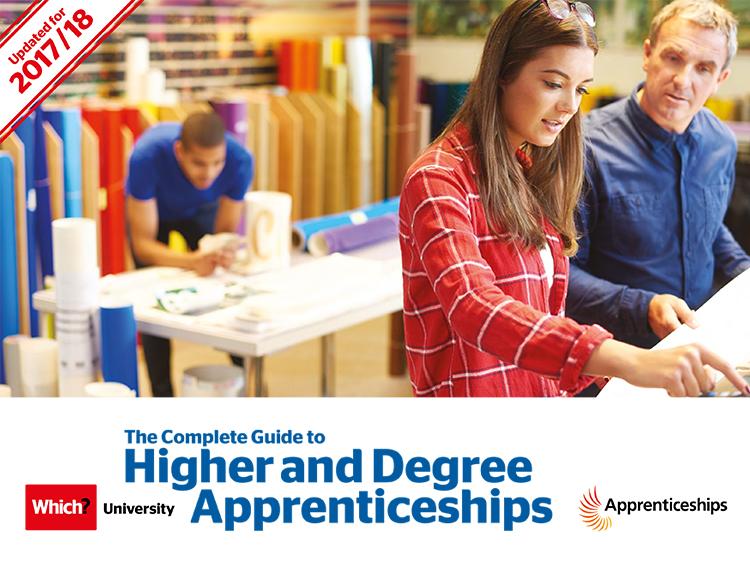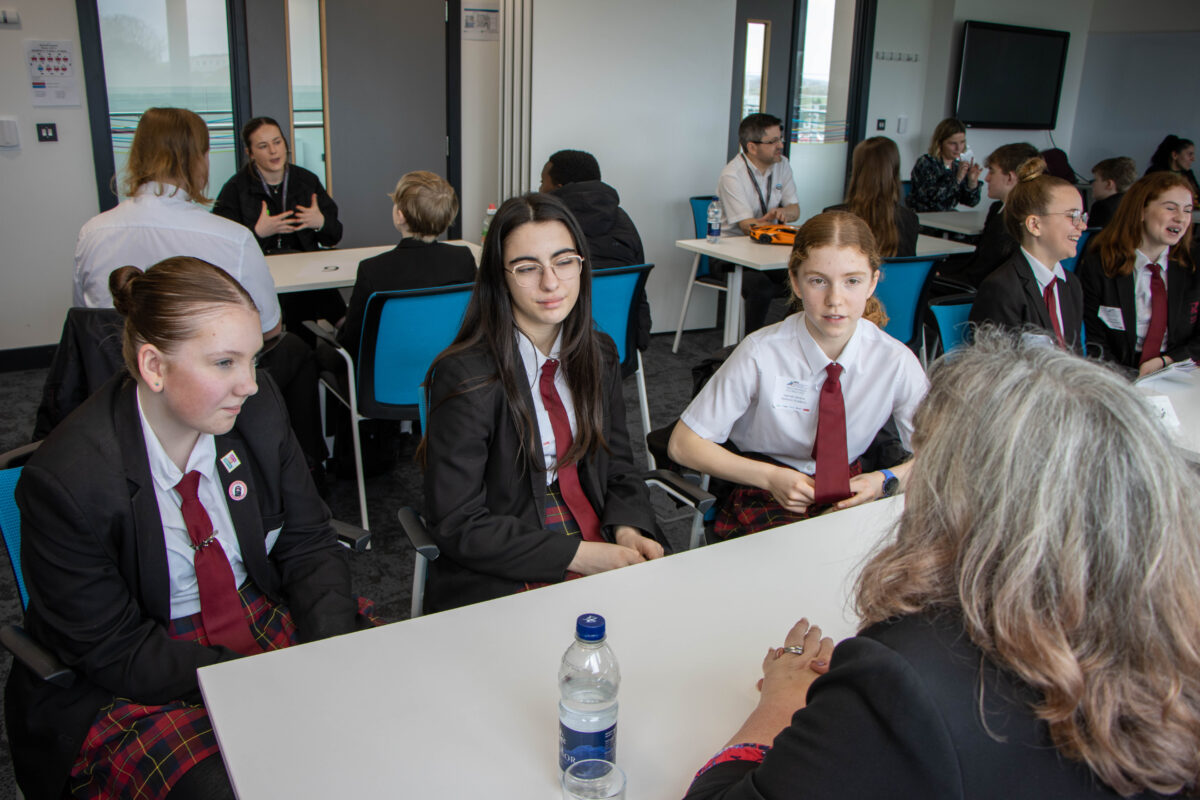Which? survey reveals gap in understanding about apprenticeships compared to university

Only a third of young people say they felt informed about apprenticeships when leaving school or college, according to Which? research.
An apprenticeship is a combined package of work and study. As an apprentice, you’ll be employed by a company and paid a wage for the work that you do alongside on-the-job and formal training towards a qualification. On a degree apprenticeship scheme, you’ll graduate with a university degree at the end – without paying tuition fees.
There are around 75 different higher and degree apprenticeships. From accounting, cyber security to law and digital marketing.
The Department for Education (DfE) said 48,000 people started an apprenticeship in England between May and July, compared with 117,000 for the same period last year.
A study of 16-24 year olds found 36% felt they were informed about apprenticeships, compared to 94% for university.
Just 3% said pursuing an apprenticeship was their first choice, while only a third (36%) said they had considered it. Two thirds (64%) felt that they didn’t know enough about apprenticeships.
Of the 1,003 young people interviewed by YouthSight for Which?, nine in 10 (91%) said going to university was their first choice or they had seriously considered it.
The findings suggest a lack of awareness of apprenticeships or what they might offer for some young people, despite the government aiming to recruit three million apprentices by 2020.
There were almost 900,000 funded apprentices in the 2015-2016 academic year, but Department of Education figures suggest numbers have dropped off despite the introduction of a levy on businesses earlier this year.
In our survey, feeling informed was an issue for young people irrespective of their socio-economic background.
Just over a third of young people from both higher (35%) and lower (37%) socio-economic backgrounds said they felt informed about apprenticeships.
Three in five ( 61%) of young people from higher socio-economic backgrounds and just over half (56%) of those from lower socio-economic backgrounds said they did not consider apprenticeships as on option at all.
Nearly half of respondents (47%) said they did not think they could get apprenticeships in the industry they wanted to go into, yet more than eight out of 10 (84%) agreed apprenticeships were a good way to learn skills and get work experience without taking on debt such as student loans.
Supported by the National Apprenticeship Service, Which? University has produced a free, downloadable guide to Higher and Degree apprenticeships, providing practical advice and real stories from apprentices on what’s available, how apprenticeships work, how to apply and long-term career prospects. Students obtain a university degree without the tuition fees and gain paid work experience, as an alternative to studying at university full-time. It allows students to earn and learn simultaneously.
Commenting on the research, Managing Director for Which? University Alex Hayman, said:
“It’s vital that young people have as much information as possible when making such crucial decisions about their future.
“Apprenticeships can be a stepping stone to a qualification up to degree level that doesn’t saddle students with tuition fees and other debts and learn in the workplace too – but it’s clear that not enough young people are aware that the option is there for them.
“Students can find a range of tools to help them plan their future on the Which? University website.”
24-year-old James Gee recently completed a higher and then degree apprenticeship with Capgemini, joining in 2011 as a junior software engineer after being disappointed with his A-level results. He recently graduated with first class honours in a BSc in Digital and Technical Solutions at Aston University.
James said: “University had always been the expected route for me and something which my school had pushed. When I just missed my university offers with AABB grades I was devastated and considered entirely rethinking pursuing the technology route.
“Since joining Capgemini as an apprentice, I’ve gained so much. I’ve achieved a university degree but also worked on my professional skills, been able to travel, and really developed in confidence. I’ve also been able to buy a car and move to London, whilst many of my friends who went to university are just starting on the career ladder.
“Doing an apprenticeship wasn’t something I expected to be undertaking a few years ago. I would recommend anyone getting their exam results next summer to figure out what interests them and then consider an apprenticeship as a route to working in that industry.”
About Which? University: A free and independent website to help students make more informed decisions about higher education, featuring more than 30,000 courses and nearly 300 universities and colleges to search and compare. It brings together facts and statistics from official sources including UCAS and the Higher Education Statistics Agency (HESA), and combine these with real-life insight from students and the unbiased, expert analysis you’d expect from Which?.
YouthSight, on behalf of Which?, interviewed 1,003 UK adults aged between 16 and 24, online between 8-11 May 2017. Data were weighted to be representative of the youth sample by age, gender and whether in education or not.










Responses